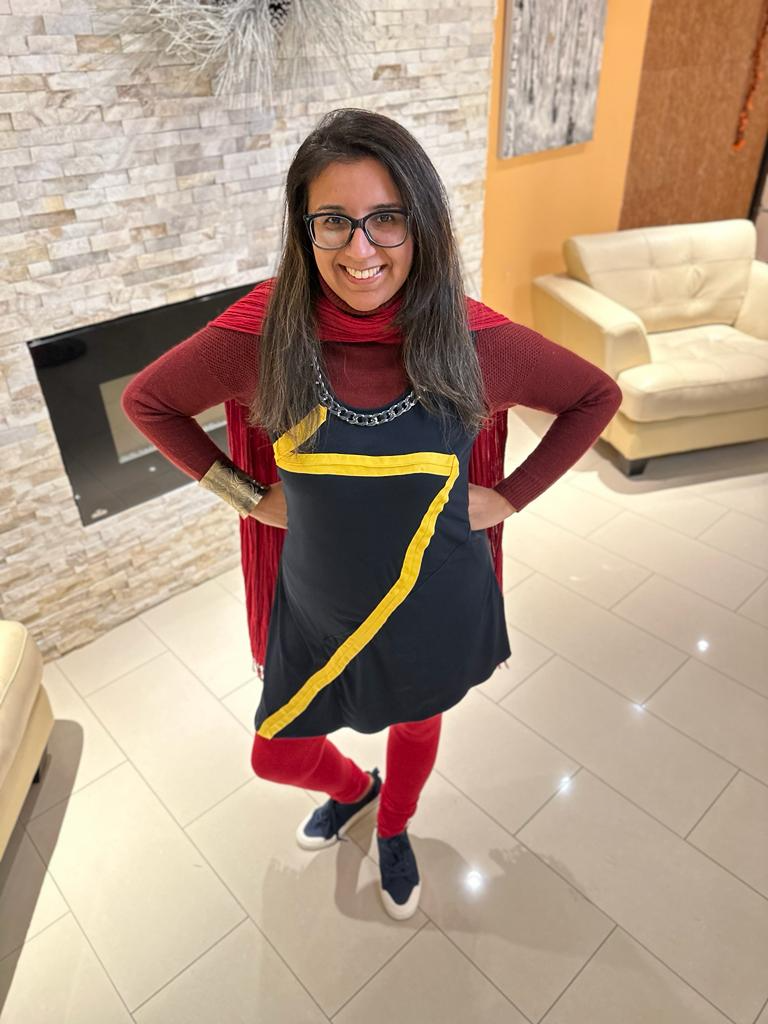I haven’t dressed up for Halloween in a minute, but this year I was compelled to make an exception in tribute to Ms. Marvel, the first Muslim superhero in the Marvel universe. Much like Kamala’s origin story, my journey began with a bangle from Karachi that I’ve been hoarding for years. I’ve come back to it many times thinking I should use it to dress up as Wonder Woman, an icon created in 1941, decades before any of us dreamt that a woman of colour could also see herself as a superhero.
When I was a kid, I dared to be Cinderella instead of Jasmine under the privileged protection of a family that taught me I could be anything I wanted. As an adult in the real world, I learned how unacceptable that was to society – to step outside of the narrow lane outlined for me as a Muslim woman in North American industry, rhetoric, and media.
So, today at our workplace Halloween event, I am intentional about choosing to be Ms. Marvel instead of Wonder Woman, not because I cannot strive to swing a lasso like a badass, but because there is finally a character at par (if not more significant) in pop culture for proving that there is space for all of us without paying the opportunity cost of forgoing our identities to belong.
I am grateful that my 3-yr-old niece and countless other kids in the coming years will have the confidence to reclaim their identities and take up any lane(s) they choose because there is a glimpse into a more representative media industry. But, today I am also making up for lost time in my own childhood; my parents even helped me sew together a costume that didn’t exist 30 years ago!
Even so, we have far, much too far to go. Ms. Marvel expresses only one out of one billion Muslim narratives and should be celebrated as a milestone toward a greater understanding that storytelling is not finite, nor exhaustive. And, when given the platforms they deserve, underrepresented stories can remind every generation of kids that they have the potential to be as super as they can dream, so that in looking back on their lives, they will have had far more equitable access to those dreams than I did to mine.
Image Credit: Zunash Chagany

